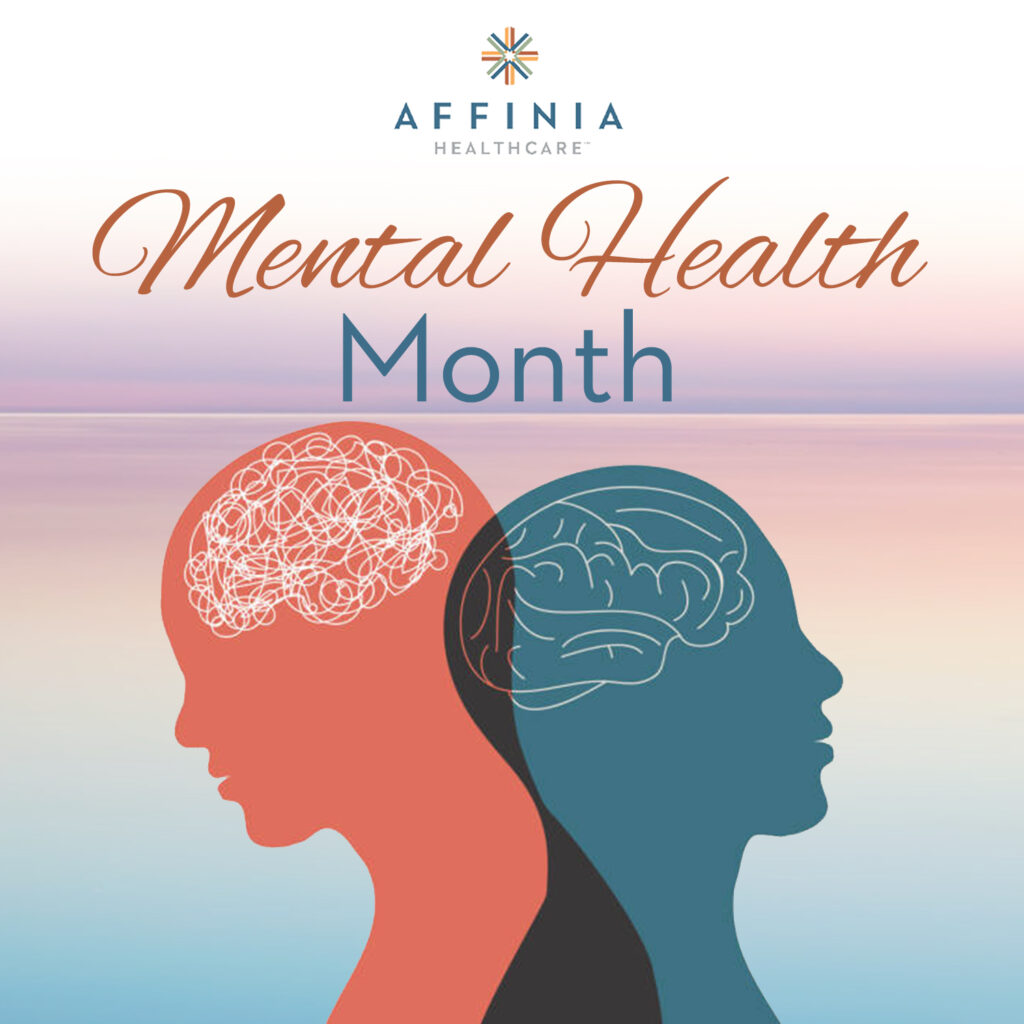May is Mental Health Awareness Month
May is Mental Health Awareness Month and I’ve asked Dr. Juee Phalak (pictured below), Director of Behavioral Health, and the Behavioral Health Team to address some myths about mental health.

If you or someone you know is struggling with a mental health disorder, please call 988 or 314-469-6644.
Myth: Mental health issues can’t affect me.
Fact: Mental health issues can affect anyone.
- In 2022, 23.1 percent of adults in the U.S. experienced a mental health condition (2)
- One in six young people have experienced a major depressive episode as of 2020. (1)
- Six percent of U.S. adults experienced a serious mental health condition in 2022, which included a psychotic disorder, bipolar disorder, sever anxiety or an eating disorder that significantly impaired their functioning. (2)
Myth: People with mental health conditions are violent.
Fact: Most people with mental health conditions are no more likely to be violent than anyone else
- Only 3 to 5 percent of violent acts can be attributed to individuals living with a serious mental illness. (1)
- People with severe mental illnesses are over 10 times more likely to be victims of a violent crime than the general population. (1)
Myth: If you ask someone about suicide, you will put the thought in their mind.
Fact: Asking people about suicide will not make them suicidal and will not put the thought into their mind.
- People who are having thoughts of ending their own life or feeling like life is not worth living feel better if someone asks them about it, validating their feelings and normalizing their experience. Opening a non-judgmental conversation improves mental health outcomes and increases the likelihood that the person will seek mental health care. (4)
- Everyone should have a safe place to disclose suicidal thoughts without fear of being judged.
- Having thoughts of suicide does not mean someone will act on those thoughts.
- A recent study led by Columbia University clinical psychologist Barbara Stanley, Ph.D., found that distraction-based techniques, such as keeping busy or socializing, were best at lowering the intensity of suicidal thoughts (3)
Myth: Mental health issues are a result of personality weakness or character flaws, and people can “snap out of it” if they try hard enough.
Fact: Mental health conditions have nothing to do with being weak and many people need help to feel better. Many factors contribute to mental health conditions, including:
- Biological factors, such as genes, physical illness, injury, or brain chemistry
- Life experiences, such as trauma, support system or lack of one, and life stress
- Family history of mental health conditions
If you or someone you know is struggling with a mental health disorder, please call 988 or 314-469-6644.
Footnotes
- https://www.samhsa.gov/mental-health/myths-and-facts
- Mental Health Statistics (2024) – Forbes Health
- Journal of Psychiatric Research, Vol. 133, 2021
- 8 common myths about suicide – Mayo Clinic Health System


